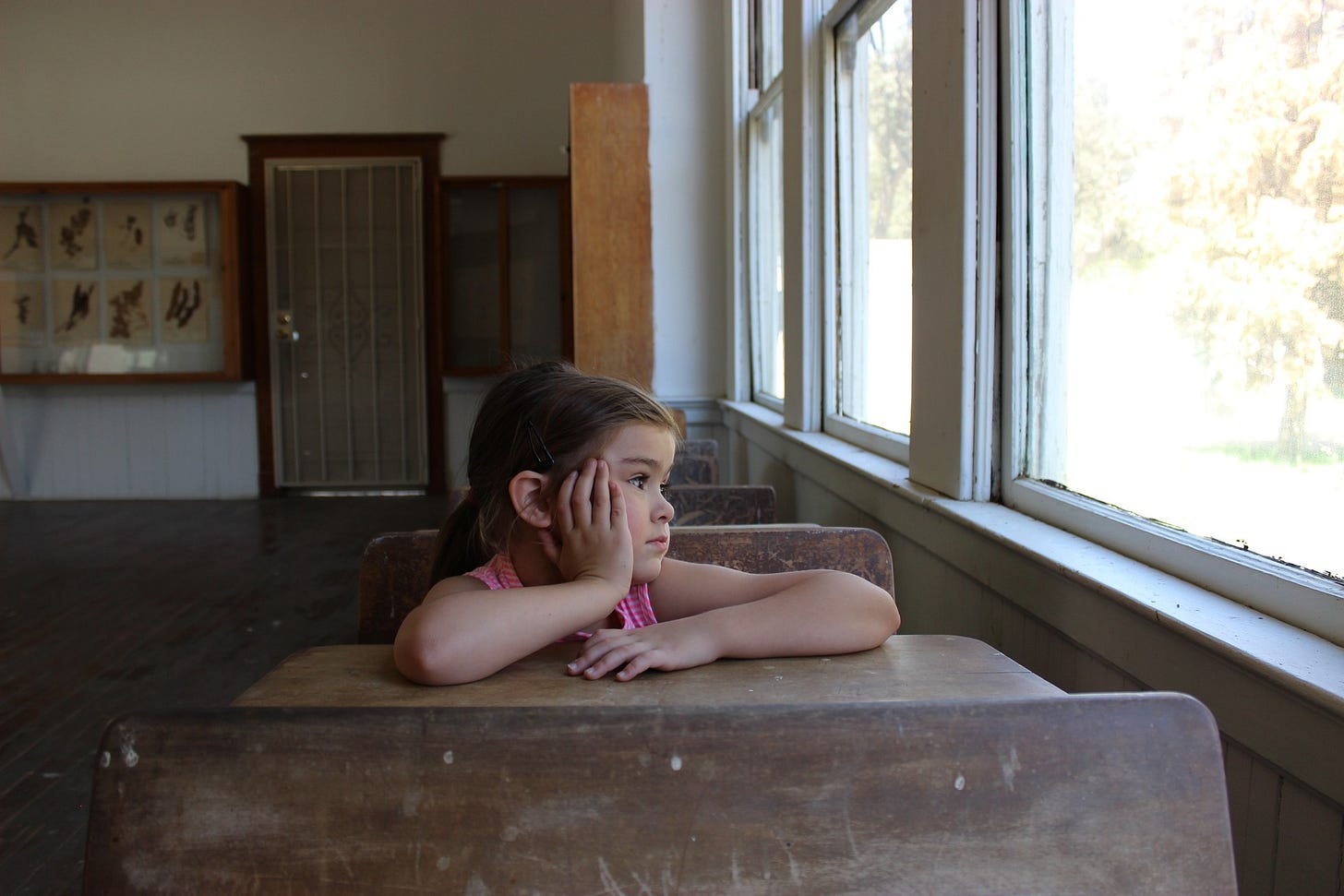
Once upon a time, I taught a course aimed at preparing pre-service teachers (those working toward licensure) for their student teaching practicum. Student apathy and other concerns regarding their students' willingness to participate in class and complete assigned coursework were top-of-mind, as they tend to be with all teachers from the novice to the more experienced. Although certainly a concern in some circumstances, apathy is not always the explanation for disengagement in school. With each batch of new pre-service teachers, I made a point to remind them that not all students love school, some of them actually despise it.
I would start such conversations by asking: "By a show of hands, did you enjoy school?" Undoubtedly, most of them would raise their hands. Schools of education are filled with undergraduates who loved school. Maybe not all aspects, but they can point to features of school that they really enjoyed, whether it be an inspiring teacher, thought-provoking courses, or being immersed in a learning environment all day. These features are why many of them decided to become teachers. When they enter their first classroom, they are perplexed by students who don't like school, or haven't figured out how to play the game of school well—follow the rules, listen to the teachers instructions, and complete assignments as described. Do they just not care about their education? Do they not understand the content? Are they distracted by things happenings in their home environment?
These and other questions form the explanations they ascribe to apathy. Rarely does it occur to teachers, young teachers in particular, that not all students are well-suited for schooling. If this thought does cross their mind, they think that they can tinker with the curriculum enough to get all students to love school. In fact, the advice they are often given is: you just need to be more creative in your teaching; you need to trick students into learning through fun activities.
The temperament of students, in many respects, drives how they respond to school. If they are more obedient, gain satisfaction from pleasing others, and thrive with routine, they likely find success in school. Whereas the more disagreeable, hands-on, and spontaneous students struggle or find school less enjoyable. A primary distinction is that some kids prefer lectures and reading and other students prefer hands-on activities. These are crude generalizations, and certainly some students enjoy reading and hands-on activities, but they highlight why some students might be good at school, while others are not.
Given that these differences are personality traits, they carry on into adulthood. The tinkerer sitting in the back of the class wondering—how will I ever use this?—will grow into the adult figuring out, through trial and error, how stuff works. The over-achiever sitting in the front of the class hanging on every word the teachers says, and thrilled by opportunities to prove what she knows, will grow into the adult who voraciously reads and passively consumes knowledge. And these temperaments shape their attitudes toward a variety of issues, including how they view the purpose of school and how school's should function.
Might this be why educational traditionalists and progressives endlessly butt heads? Their temperament, thus attitude towards schooling, differs?
Traditionalists place knowledge acquisition above experiential learning in the hierarchy of importance regarding how students should learn and how teachers should teach. As students, they likely enjoyed lectures by teachers and preferred individual work over group activities. Progressives are the opposite. They place experience and hands-on activities over lecture-style teaching, often referred to as the sage on the stage, in their hierarchy of importance. This is not to say that traditionalists don't put any value on experience or that progressives see no need for students to acquire knowledge; when it comes to how students should learn in schools, they just rank the order of importance differently.
Traditionalist and progressive approaches to the structure of schooling are not mutually exclusive, but the two camps often balk at attempts to make this point, especially when the heroes of the respective philosophies on education are raised. Either John Dewey is toxic or E.D. Hirsch, Jr. is; which one you admire depends on where you stand. If one's philosophy of education is largely driven by their temperament and what they loved and hated about school, a meeting of the minds will be challenging. Perhaps this is one case for school choice: to accommodate the temperaments and individual needs of current students. But school reform advocates and supporters of the status quo must acknowledge that there temperament might, at least in part, be driving their views on schooling, and such views might not produce the best model of schooling for all students. One cannot school-choice their way out of establishing a coherent vision of schooling and what they ought to do; finding common ground, at least minimally, is necessary.



